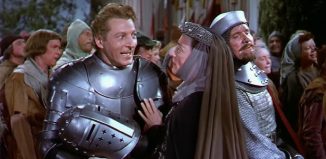Jimmy Carter and Wallace Hartley: masters of the swan song
Former President Jimmy Carter’s announcement last week that he had four spots of cancer on his brain made me think of Wallace Hartley. Engaged to Maria Robinson, Hartley spent a week with his fiancée in Yorkshire, England before he brought his violin to lead the orchestra on the maiden voyage of the Titanic in 1912.
The 33-year-old violinist played music as the enormous ship floundered and disappeared with more than 1,500 other people into the frozen waters of the Atlantic Ocean.
After Hartley’s body was recovered, 40,000 people reportedly lined the route of his procession, while more than 1,000 people attended his funeral.
What is it about Hartley that captured the imagination of the people in England? Is it that he offered something resembling normalcy and decency in the face of certain death? Is it that he didn’t panic, dive overboard or do whatever he could to save himself? Maybe.
Or perhaps it’s that his swan song was so beautiful that it might have offered something remarkable, memorable and peaceful that night to two groups of people: those safely at a distance in lifeboats and the ones confronting the final moments of their mortality.
Last week, Carter, who is 90 years old, offered a picture of calm as he grinned, answered questions and remained positive throughout a public discussion of his health.
I’ve often heard people imagine what it is that makes humans different from other animals. At one point, a discussion centered around our use of tools. Chimpanzees, however, remove leaves and branches, jamming sticks — or in this case their own version of tools — into a termite mound and eating the insects attached to those branches.
Maybe we’re different, some have argued, because we use language. Given the extensive sounds of songbirds on Long Island, the range of noises dogs make when we return home after our bosses bark incessantly at us, or the calls of whales over hundreds of miles of ocean to each other, it’s hard to believe we hold an exclusive on language.
Among other things, maybe we’re different because we can see through time. We can imagine the Big Bang 13.7 billion years ago, we can picture the age of the dinosaurs and we can work toward a 5-, 10- or even 20-year plan in our lives.
We can also salute the life of someone we knew. Long ago, when my son was 4, we passed a chipmunk roadkill. He asked whether the members of that chipmunk’s family missed him.
Despite the familiarity of routine in our lives, we recognize the uncertainty of each day, whether we have the good fortune to live as long as Carter or the misfortune to see a sudden end, the way Hartley did. In those final moments, if we get them, we might have an opportunity to offer a memorable swan song, tipping our caps to others who are still here, grinning the way Carter did, at a life well lived, at friends, at family and at memories that will outlive us.
More than 100 years later, Hartley’s name is immortalized at his grave and through the Internet, a tool for communicating developed long after he played his last note and offered what legend has it were among his final words: “Gentlemen, I bid you farewell.”
Carter has no idea how many notes he still has left to play with his diplomacy and his efforts to construct homes. In this press conference, however, he shared a broad smile and a reassuring tone, ready perhaps for the moment — whenever it comes — to bid us all a peaceful farewell.






